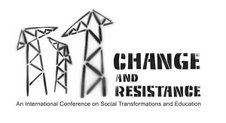Kamila Biały
University of Łódź,
Institute of Sociology
Towards the end of the XX century, starting from the late ‘70s, a failing economy, inflation, and rising unemployment shift the political balance to the right, that is, to the new right, based not upon land but upon the market. Like all other ideologies of the twentieth century, neoliberalism promises paradise on earth. It considers itself to be the emancipation project of all human beings based on the unlimited capacities of science and technology and the corresponding rules of free market global economy, which are supposed to facilitate their unrestricted development. And like most Enlightenment ideologies, although it uses the language of reason and science, it is actually driven by faith.
The shift one can observe in today’s higher education from the Humboldtian notion of the university, claimed increasingly obsolete for a knowledge society, to one that operates under market pressures is part of the processes described above. The notion of “the enterpreneurial university” is based on the assumption of a coexistence between ethical and intellectual values, such as truth, ethics, authority, autonomy, the freedom of research and teaching, critical potential, scientific risk and economic and technological values, such as utility, efficiency, calculation, accountability, flexibility and innovation.
In the shift I see, contrary to supporters of the coincidentia oppositorum, a disproportion between ethical and intellectual values on the one hand and economic and technological values on the other. This disproportion can be revealed with the use of Critical Discourse Analysis (CDA). Furthermore, the analysis of the processes of changes in academic institutions, conducted from that particular perspective, makes visible opaque relationships between language and ideology, to be precise, it may disclose an ideological function of the system of higher education in maintaining neoliberal status quo as well as illuminate the attempts of resistance to that, using CDA’s terminology, universal order of discourse.
In my presentation this approach will help me to see an academic institution as a sheer enterprise where four major strategies play a major role: production, finance & law, human resources and marketing. I will analyse in terms of technologies of discourse a few examples, taken from the Polish academic institutions, that in my view represent the new language of the university.
Subscribe to:
Post Comments (Atom)

No comments:
Post a Comment